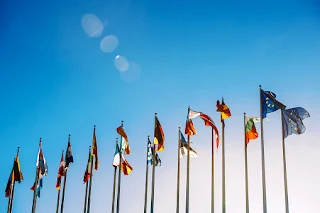What are SDGs and Why are They Important?
What are SDGs and Why are They Important?
The United Nations General Assembly created the Sustainable Development Goals (SDGs), a group of 17 global objectives, in 2015. The objectives were created with the intention of reaching a more sustainable and just future for all while addressing the most urgent economic, social, and environmental challenges facing the planet. We will discuss the idea of SDGs and their significance in this essay.
What are the Sustainable Development Goals (SDGs)? : The SDGs are a set of 17 goals with 169 targets that address a variety of issues, including poverty, hunger, health, education, gender equality, clean water and sanitation, affordable and clean energy, decent work and economic growth, industry, innovation and infrastructure, reduced inequalities, sustainable cities and communities, responsible consumption and production, climate action, life below the waterline, life on land, peace, justice and strong institutions, and partnerships for the goals.
The SDGs were created to replace the Millennium Development Goals (MDGs), which were introduced in 2000 and reached their conclusion in 2015. The MDGs were a collection of eight objectives created to lower poverty and raise living standards in underdeveloped nations. The MDGs were partially successful, but there were many gaps and restrictions, such as inadequate focus on environmental sustainability, inequality, and administration. The SDGs were created to close these gaps and expand on the MDGs' successes.
SDGs' importance: There are many reasons why the SDGs are significant. They first offer a framework and shared vision for global development, enabling governments, civic society, and the private sector to collaborate on a shared objective. Second, regardless of a nation's degree of development or income, they are universal and thus apply to all nations. Thirdly, they are integrated, taking into account how various facets of sustainable development—like poverty alleviation, environmental preservation, and societal inclusion—are interconnected. In order to accomplish a fundamental change in the way we live, work, and interact with our environment, they are ambitious.
SDG Progress: Since the SDGs were introduced, some noteworthy progress has been made, including the elimination of severe poverty and the expansion of access to healthcare and education in some areas. There are, however, a number of obstacles, including a lack of money, sluggish advancement in some places, and the COVID-19 pandemic's effects on international development. Yet, the SDGs continue to be an essential framework for advancing sustainable development and tackling the most serious issues facing the globe.
The SDGs provide a framework for solving the most urgent economic, social, and environmental concerns facing the globe and represent a unified vision for global development. The SDGs continue to be a vital instrument for building a more sustainable and equitable future for all notwithstanding the obstacles and shortcomings. Together, we can achieve these objectives and build a more wealthy, just, and environmentally sustainable society.








Comments
Post a Comment